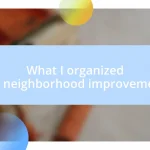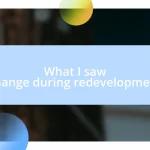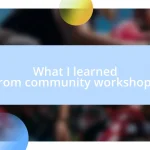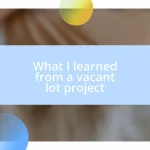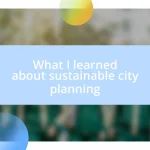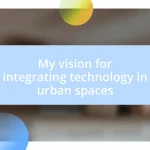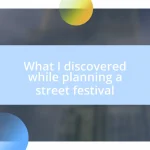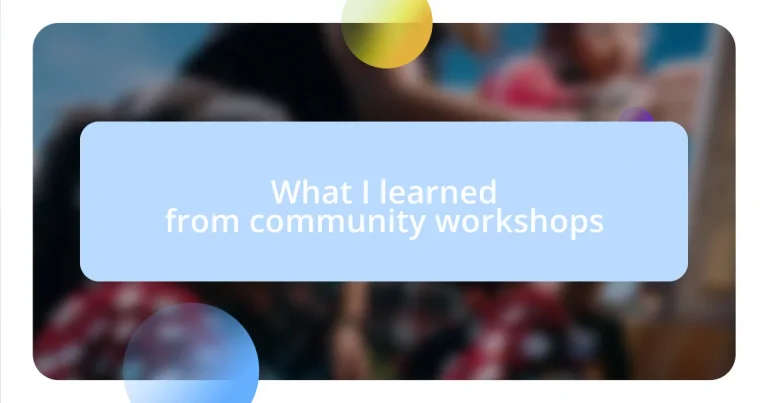Key takeaways:
- Workshops provide transformative experiences that enhance skills such as communication, problem-solving, and teamwork while fostering personal confidence.
- Networking opportunities in workshops can lead to significant collaborations and broaden perspectives through diverse interactions.
- Real-life applications of learned skills, such as conflict resolution and time management, demonstrate how workshop experiences positively impact both personal and professional growth.
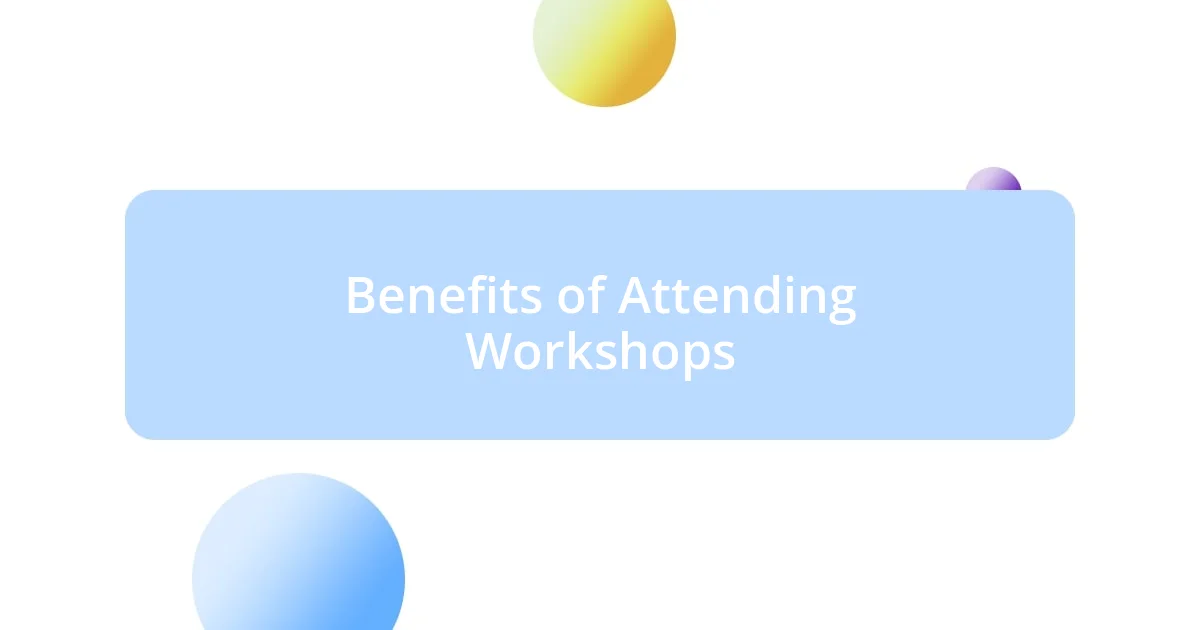
Benefits of Attending Workshops
Attending workshops can be a transformative experience. I remember one workshop focused on creative problem-solving; the atmosphere buzzed with energy and ideas. I walked away not only with practical skills but also a renewed sense of confidence. Have you ever left a session feeling like you could tackle any challenge? That’s the power of learning in a supportive environment.
Another significant benefit of workshops is the networking opportunities. Just think about it: you’re surrounded by people who share your interests and passions. At one workshop I attended, I met someone who later became a mentor for my projects. Isn’t it amazing how a single conversation can open doors to new possibilities?
Workshops also encourage a hands-on learning approach. Unlike traditional classroom settings, you actively engage in exercises that reinforce your understanding. I once participated in a workshop where we role-played different scenarios related to our field. The laughter and collaboration made the learning memorable and fun. Have you considered how much more impactful an experience like that can be compared to just reading about it?
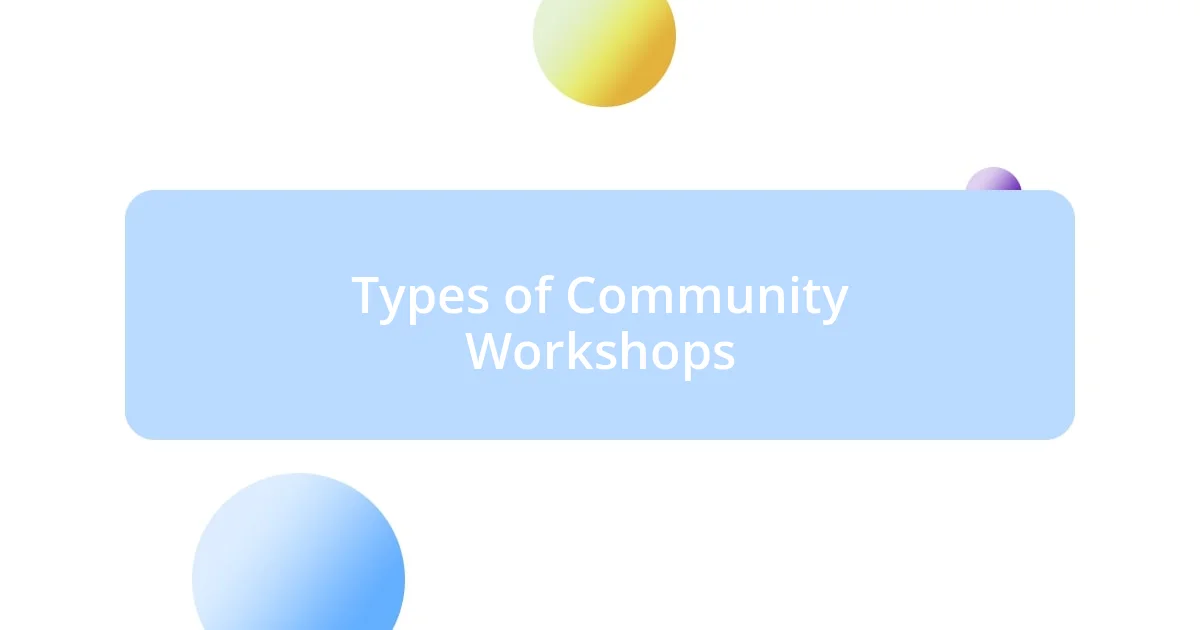
Types of Community Workshops
When discussing the types of community workshops, I often think about how diverse they can be. For instance, I attended a technology workshop focused on coding for beginners. It was fascinating to see people from various backgrounds come together, united by a desire to learn a new skill. The enthusiasm in the room was contagious, and honestly, it rekindled my own passion for technology. Have you ever felt that spark when learning something fresh amid like-minded individuals?
Another common type of workshop is focused on personal development. I remember participating in a series that tackled public speaking. The first session was nerve-wracking; I recall my hands shaking as I spoke. Yet, with each meeting, I gained confidence and refined my skills. It’s remarkable how community workshops can transform a personal fear into a newfound strength, don’t you think?
Lastly, there are workshops dedicated to art and creativity. One summer, I took part in a painting workshop that urged us to embrace our creativity without judgment. Each stroke of the brush felt liberating. Sharing that experience with others who were also exploring their artistic sides turned it into a safe haven. There’s something special about making art in a community that truly amplifies the joy of creation.
| Type of Workshop | Description |
|---|---|
| Technology Workshops | Focused on specific technical skills, often catering to all levels of experience. |
| Personal Development Workshops | Centered around improving soft skills, such as communication and public speaking. |
| Art and Creativity Workshops | Encourage self-expression through various art forms, fostering a collaborative environment. |
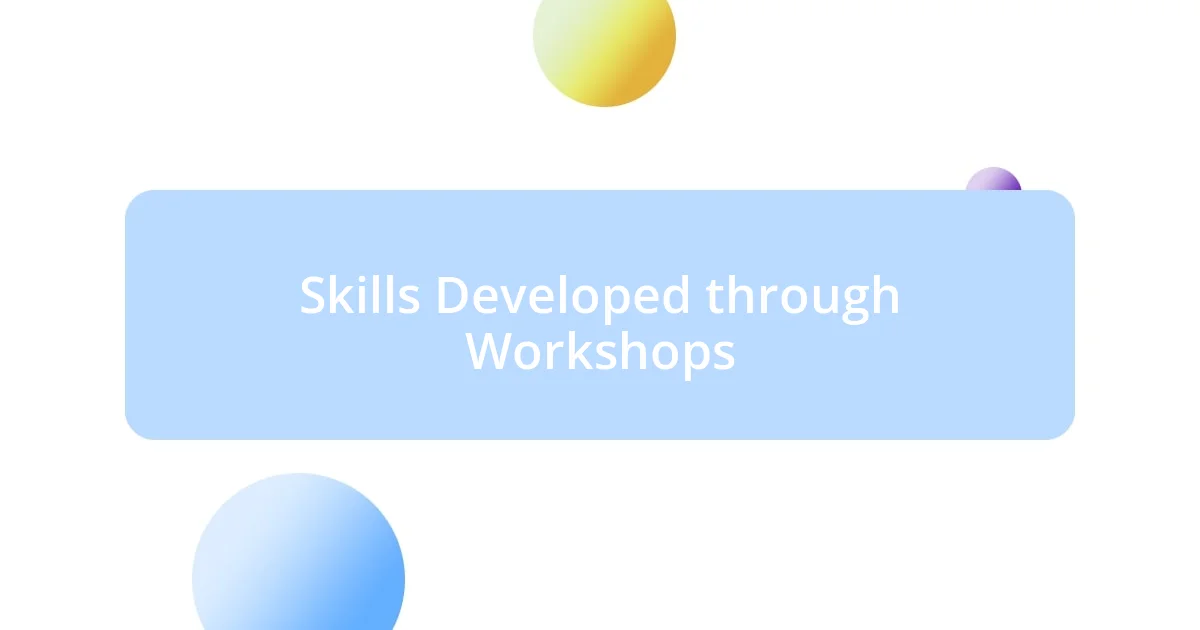
Skills Developed through Workshops
The skills I developed through workshops have been invaluable. In one workshop on project management, I learned to prioritize tasks effectively. I can still remember the satisfaction of completing complex exercises that gradually improved my organizational skills. I left each session feeling empowered, equipped with tools that I actually put into practice in my daily life.
Here are some key skills I found beneficial:
- Communication Skills: Engaging in group discussions helped me articulate my thoughts clearly.
- Problem-Solving: Working through real-life scenarios taught me to think critically and creatively.
- Teamwork: Collaborating with diverse participants enhanced my ability to work cohesively with others.
- Adaptability: Adapting to different activities and feedback sharpened my flexibility in approach.
- Networking: Building connections during workshops has proven crucial for both personal and professional growth.
One poignant workshop experience stands out to me. It focused on financial literacy, a topic that initially intimidated me. At first, I felt overwhelmed by the spreadsheets and financial jargon. However, the supportive atmosphere transformed my fear into fascination as I grasped concepts like budgeting and investing. The instructor’s relatable anecdotes made the information more accessible, and I left with a newfound confidence—not just in my financial skills, but in my ability to tackle daunting subjects head-on. It’s incredible how shared learning experiences can reshape our understanding and capabilities, isn’t it?
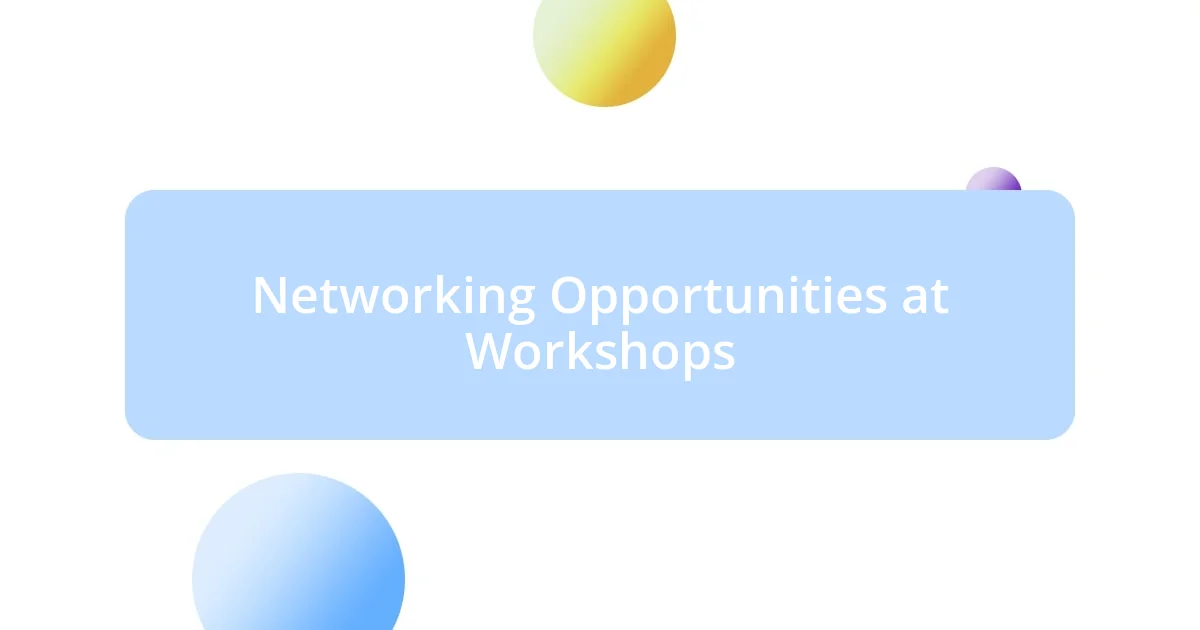
Networking Opportunities at Workshops
When attending community workshops, I discovered that networking is often one of the most rewarding aspects. One memorable experience involved a social entrepreneurship workshop where I struck up a conversation during lunch. I found myself sharing ideas with a fellow participant who later became a collaborator on a project of mine. Isn’t it fascinating how a casual chat can lead to significant partnerships?
Additionally, the diversity of people in these workshops can open unexpected doors. I recall meeting someone from a different industry at a digital marketing workshop who had insights that completely shifted my approach. Their perspective encouraged me to think outside the box and consider how my skills could apply in unique ways. Isn’t that the beauty of networking—each connection bringing a chance to learn something new?
Moreover, networking at workshops often feels organic and less intimidating. I remember attending a community garden workshop where the focus was on sustainability. Instead of the usual business card exchanges, we bonded over our shared love for plants and gardening. By the end of the day, I had new friends and green thumb tips to take home. It makes me wonder—how many great relationships are awaiting discovery in the most unexpected places?
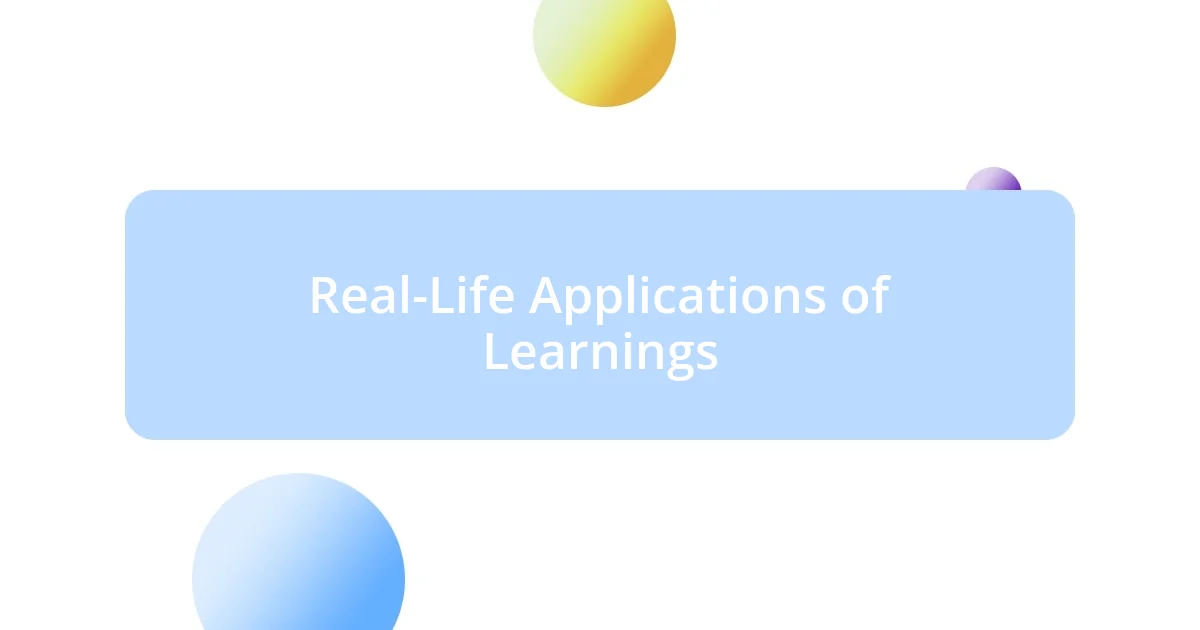
Real-Life Applications of Learnings
Participating in community workshops taught me that the knowledge gained isn’t just theoretical; it has practical implications in my daily life. For instance, after a workshop on conflict resolution, I found myself applying those techniques in a family disagreement. Instead of escalating tensions, I utilized active listening and empathy, leading to a surprising resolution. It’s amazing how a few learned strategies can transform personal situations, don’t you think?
One striking example of real-life application happened after a creativity workshop. I was inspired to start a weekly art project with friends, turning abstract ideas into tangible creations. This not only strengthened our bonds but also fostered an environment where we felt safe to express ourselves artistically. I’ve noticed how engaging in shared creative activities enriches relationships. Have you ever felt that rush of inspiration when collaborating with others? It’s a game changer.
The skills I acquired also extend to my professional endeavors. I recall implementing the time management techniques from a workshop during a crucial project at work. By breaking tasks into manageable chunks, I not only met deadlines but also improved the quality of my output. This experience made me realize that the benefits of community workshops surpass personal growth; they can elevate our professional lives as well. How empowering it is to have that toolkit within reach!
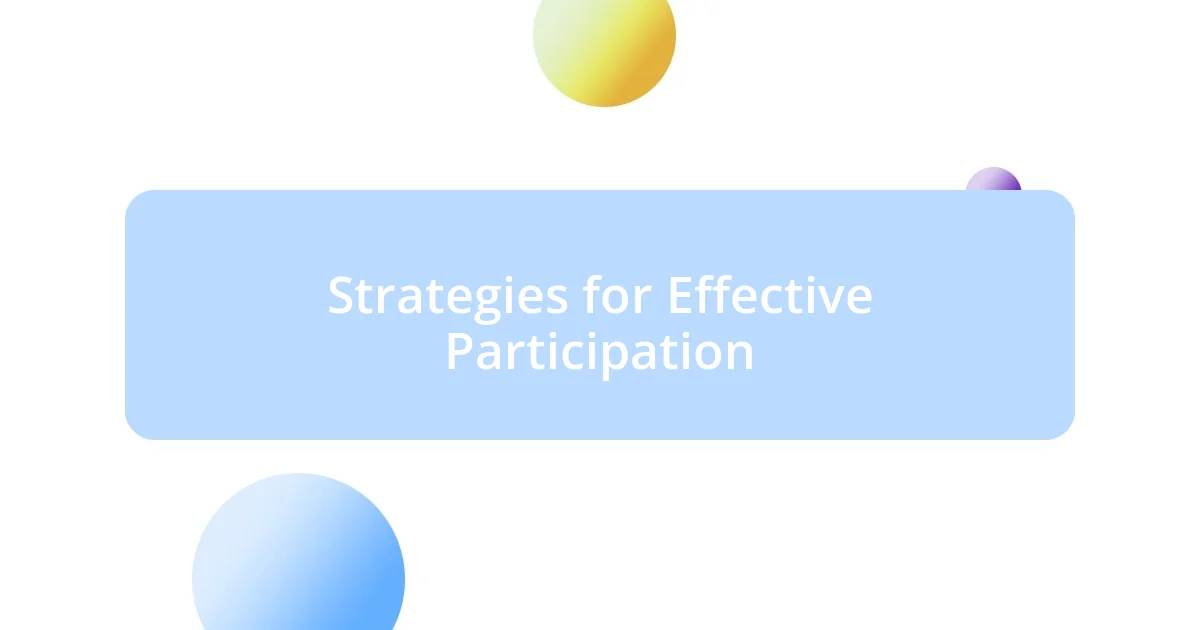
Strategies for Effective Participation
Effective participation in community workshops often hinges on preparation. I remember a workshop on public speaking where I arrived with a list of questions. This preparation helped me feel more confident and engaged; I found myself asking questions that not only clarified my doubts but also spurred great discussions with other participants. How often do we miss opportunities for deeper interaction simply because we don’t come prepared?
Another strategy involves embracing vulnerability. At a recent workshop on mental health, I shared my struggles with anxiety. The response was overwhelming, with several attendees opening up about their experiences. This exchange fostered a safe space where everyone felt comfortable sharing. It made me realize that expressing our challenges can lead to meaningful connections and collective growth. Have you ever noticed how honest conversations can transform the atmosphere in a room?
Listening actively is also a crucial component of effective participation. During a community art workshop, I practiced focusing entirely on what others were saying, rather than planning my responses. It felt liberating to give my full attention. Not only did I gain valuable insights from my peers, but I also developed a deeper appreciation for their perspectives. Isn’t it interesting how enhancing our listening skills can enrich our learning experiences?
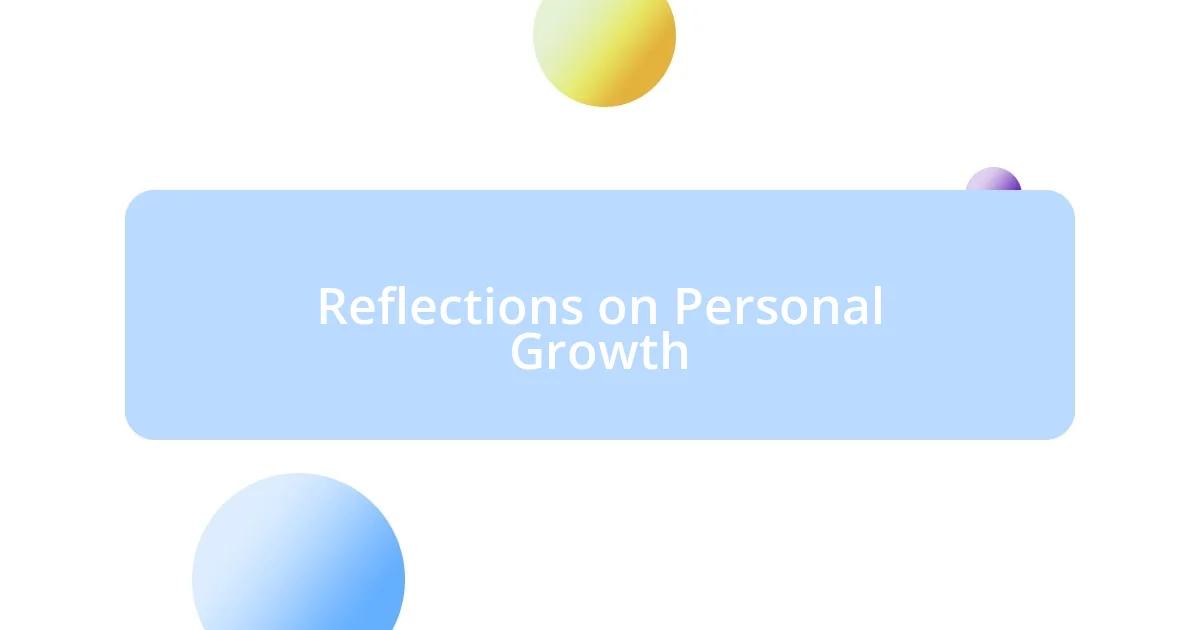
Reflections on Personal Growth
Reflecting on personal growth through community workshops, I can’t help but cherish those “aha” moments. I attended a leadership workshop that pushed me out of my comfort zone. Standing in front of a group to share my experiences was nerve-wracking, yet that vulnerability sparked an unexpected realization: sharing my voice can inspire others, too. Have you ever felt that mix of fear and exhilaration when doing something new? It’s in those moments that we truly discover our potential.
One defining experience came during a workshop on diversity and inclusion. Listening to others share their stories, I felt a profound sense of empathy blooming within me. Their struggles and triumphs reflected parts of my own journey, and I couldn’t ignore that connection. This realization made me appreciate the power of community in fostering growth. Have you ever noticed how understanding others can illuminate your own path? It’s like looking in a mirror; these reflections can lead to significant self-discovery.
What strikes me most about my growth journey is how these workshops have consistently challenged my old beliefs. I used to shy away from difficult conversations, fearing conflict. But after a particularly engaging session on effective communication, I found the courage to address long-standing issues with friends. The transformation was remarkable—what used to be heavy conversations turned into opportunities for deeper connection. Isn’t it fascinating how personal evolution often starts with a single step outside our comfort zone?



